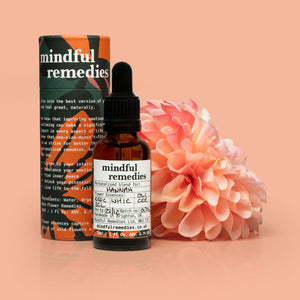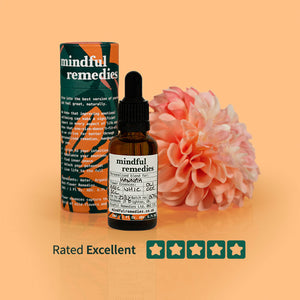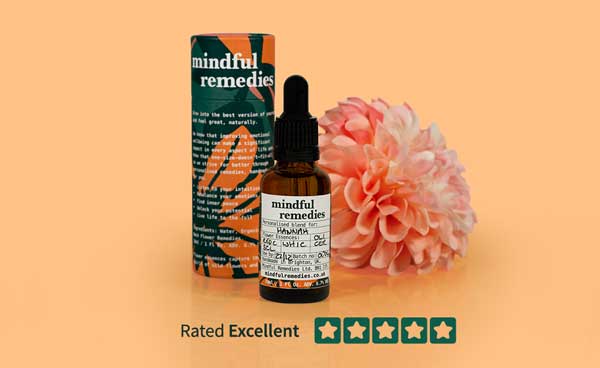your basket
- choosing a selection results in a full page refresh

How do you let go of the past? How do you move forward when your mind is constantly dragging you back? How do you forgive yourself for your mistakes and start fresh? It's not easy, but it is possible. In this blog post, we will discuss some strategies for moving on from the past and letting go of the baggage that is holding you back. We will also talk about how to find forgiveness and peace in your heart.
We all have memories that we would rather forget, experiences that we would rather not relive. Whether it's a relationship that ended badly, or a decision that didn't turn out the way you wanted, dwelling on what could have been can be emotionally draining. Unfortunately, if we don't let go of the past, it can hold us back from moving forward in our lives. Many people struggle with letting go of the past. However, it is important to realise that holding onto past regrets can be very detrimental to your mental health and wellbeing. It can also make you miss out on important opportunities in the present.
Letting go of the past doesn't mean forgetting what happened; instead, it's about accepting what happened and moving on. It's also important to forgive yourself for any mistakes you may have made. Holding onto resentment and guilt will only keep you trapped in the past. Instead, focus on the present and make the most of every moment. Life is too short to waste time living in the past.
So here's some helpful tips to help you let go of the past and move forward in life.

We all have things that we wish we could go back and do differently. But it is important to understand that the past cannot be changed. We can learn from our mistakes and make different choices in the future, but we cannot go back and undo what has already been done. Trying to change the past can lead to resentment, bitterness, and regret. Instead of dwelling on what might have been, we should focus on making the most of the present and creating a positive future. Accepting that the past cannot be changed is an essential part of living a happy and fulfilling life.
Acknowledge your feelings, welcome them, and then let them flow through you without letting them grab hold of you or control you. This is one of the most important things you can do for your emotional well-being. When you try to bottle up your feelings or push them away, they tend to come out in unhealthy ways - like anger, resentment, self-destructive behaviours, or depression. But when you allow yourself to feel your emotions, they can move through you and then be released. It may not always be comfortable, but it is always healthier in the long run.
Holding a grudge is like drinking poison and expecting the other person to die. It only harms you emotionally. Letting go of grudges and resentment frees up mental space and allows you to focus on more positive things. Additionally, holding onto anger and bitterness will only make you feel more negative emotions in the long run. Try to view the situation from the other person's perspective and understand why they may have acted the way they did. If you can't do that, then try to forgive them for your own sake. Forgiving someone doesn't mean that you condone their actions; it just means that you're willing to let go of the negativity and move on with your life. When you let go of a grudge, you also open yourself up to the possibility of a better future relationship with that person.

It's human nature to dwell on negative thoughts and memories. We often ruminate on things that have gone wrong or relive moments that have caused us pain. However, dwelling on these negative experiences can be harmful to our mental health. When we dwell on negative thoughts, we give them power over us. They become all-consuming, and it becomes difficult to focus on anything else. Additionally, dwelling on bad experiences can prevent us from moving forward. We become stuck in the past, unable to enjoy the present or look forward to the future. It's important to remember that we don't have to dwell on negative thoughts and memories. We can choose to let them go. By doing so, we can take back control of our lives and focus on the positive aspects of our experience.
Too often, we are our own worst critics. We beat ourselves up for our mistakes, dwell on our shortcomings, and compare ourselves to others. This toxic way of thinking takes a toll on our mental and physical health. Luckily, there is a way to break the cycle of self-criticism: self-compassion. Self-compassion involves treating ourselves with the same kindness, understanding, and forgiveness that we would extend to others. It means recognising that we are all imperfect beings, worthy of love and compassion. By practicing self-compassion, we can learn to accept ourselves unconditionally and build a foundation of resilience that will help us weather life’s inevitable challenges.
Moving forward with purpose and intention doesn't mean that you don't ever look back. It means that you are mindful of the present moment and the choices you make in each moment. You are aware of your goals and what you need to do to achieve them. You don't get caught up in regrets about the past or worries about the future. You live in the present and make choices that will help you achieve your goals. When you move forward with purpose and intention, every step is part of a larger journey. Every choice is made with care and attention. You are present in each moment and moving towards your goals.

No one said that life was going to be easy. But that doesn't mean that you just have to sit back and accept whatever comes your way. If you're not happy with your current situation, take action to improve it. It may not be easy, but it will be worth it in the end.
First, take a good hard look at your situation and figure out what it is that you're not happy with. Is it your job? Your relationships? Your living situation? Once you've identified the problem, you can start to look for solutions.
If you're unhappy with your job, maybe it's time to start looking for a new one. Or if you're unhappy with your relationships, maybe it's time to take a good hard look at those and see if there's anything you can do to improve them. Maybe you need to set some boundaries or have some difficult conversations. Whatever the case may be, don't be afraid to take action.
Remember, life is precious and it's up to you to make the most of it. So if you're not happy with your current situation, do something about it. It may not be easy, but it will be worth it in the end.
Change is a natural part of life, and it can be a good thing. Embracing change can help you to grow and learn new things. It can also open up new opportunities and experiences. Sometimes, change can be difficult, but it is often worth it in the end. If you are feeling hesitant about a change, try to remind yourself of the times when you have successfully embraced change in the past. Remind yourself of the positives that came from those experiences. Change can be scary, but it can also be exciting. Embrace it with open arms!
Bach flower remedies are a natural, gentle way to treat emotional imbalances. The Bach philosophy is that negative emotions can cause physical illness, and so the correct combination of these remedies can help to restore emotional balance and wellbeing. There are 38 different Bach flower remedies, each of which targets a specific emotion. For example, Crab Apple is used for feelings of self-loathing. The remedies are made from flowers that have been specially cultivated and prepared according to Dr Bach's original methods. They are safe for everyone to use, including children and pregnant women. They are taken as drops in the mouth - not to be confused with essential oils! If you're looking for a natural way to feel better emotionally, Bach flower remedies could be worth considering.

Here are a selection of remedies that can help you let go of the past and move forward in life positively.
At Mindful Remedies we offer the ability to create your own personalised flower remedy blend choosing up to seven flower remedies in a treatment bottle.
If you feel any of the above statements ring true to you and you wish to try Bach flower remedies, you can create add these remedy to your personalised blend using the buttons above.
Simply select a maximum of seven remedies from the full range of 38 flower remedies. We'll handcraft your remedy and post it to you anywhere in the world. Alternatively, you might want to book an online consultation with a Bach flower practitioner who can provide a personal recommendation for you.
view all 38 flower essences book an online consultation
You may also want to view our...

Since 2021, Lucy Edwards, a qualified Bach Flower Practitioner and the driving force behind Mindful Remedies, has connected with clients across the world. Crafting thousands of personalised remedies, Lucy has supported individuals' emotional wellbeing, shipping remedies to far-flung places like the USA, Thailand, and Australia.
Lucy is readily available for conversations, offering personalised advice to guide you on the path to holistic wellness. It's important to note that she's not only qualified but also registered with the Bach Centre, ensuring that every consultation and remedy adheres to Dr Bach’s original guidelines for expert care and efficacy.
Exclusive pricing 20% off your first subscription order and 5% off all future orders
VIP treatment Receive personalised advice from Lucy, free gifts & 15% off gift vouchers
Easy to manage Edit remedy, change schedule, pause or cancel at any time
Exclusive online workshops Access to workshops focusing on emotional wellbeing, guided by Lucy
Early access to new products Be the first to try out new remedies or wellness products, before anyone else



